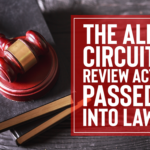Securities Fraud
Since the Wall Street meltdown of the late 2000s, we’ve seen more and more front-page news stories of massive banks and financial institutions paying hundreds of millions and even billions of dollars in fines, penalties, and settlements in connection with alleged violations of our federal securities laws. The SEC brings hundreds of cases a year, but its enforcement efforts are likely the tip of the iceberg. The SEC is simply outmanned and under-resouced in trying to police the United States’ financial industry, not to mention the the individual investors and corporations that may violate laws, generating financial gains at the expense of honest investors and the financial markets.
In order to combat the high rate of securities violations, Congress created in 2010 the SEC Whistleblower Program as part of the Dodd-Frank Act. The Program seeks model the the False Claims Act by encouraging and rewarding individuals who bring credible evidence of securities law violations to the SEC. Whistleblowers receive 10% and 30% of the total monetary sanctions collected by the SEC, which can be very substantial in many cases.
Most people know what’s right. Unfortunately, it often takes a special person to do what’s right.
Bringing an SEC Whistleblower Claim
To bring a successful whistleblower claim, an individual (or individuals) must provide the SEC with original information about a possible violation of the securities law that has occurred, is occurring, or is about to occur. To qualify for the whistleblower award, the monetary sanctions must exceed $1 million. Keep in mind, however, the SEC may impose sanctions with penalties that far exceed the amount of money at issue in the underlying action, and that will be included in determining the award. The information must be “voluntarily” provided to the SEC, meaning a whistleblower must provide it to the SEC before it is requested by the SEC or any other governmental or self-regulatory organization (e.g., the Financial Industry Regulatory Authority, or FINRA) in an inspection or investigation. The information should have been acquired by the whistleblower through private sources or through independent evaluation of public sources. If the whistleblower has already internally reported the information at an organization, he or she may still be eligible for the whistleblower award if reported to the SEC within 120 days.
The whistleblower should report the information to the SEC directly. Working with an experienced whistleblower attorney can be tremendously beneficial in securing a recovery, as the attorney will guide the whistleblower in collecting and presenting the evidence of securities law violations in a comprehensive and persuasive manner. An experienced attorney can also continue to work with the SEC as the SEC determines whether to investigate, then conducts the investigation, and works toward a resolution. A whistleblower may submit information anonymously to the SEC, and the SEC will continue to protect the whistleblower’s anonymity, but whistleblowers who wish to remain anonymous must work with an attorney in making a whistleblower submission to the SEC.
You can learn more about the SEC Whistleblower Program on the SEC’s website or by downloading the Program’s Final Rules.



